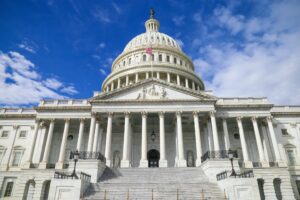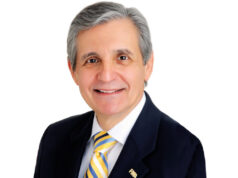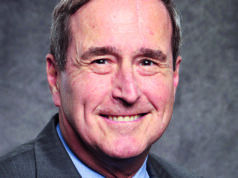
There is no doubt that the Medicare payment system needs reform. At this moment, the SVS is aiming to inspire reform through all facets of effective advocacy. This takes place incrementally by raising Congressional awareness of the issues that physicians face.
Following its enactment in 2015, Congress has not conducted rigorous oversight of the implementation of the Medicare Access and CHIP Reauthorization Act (MACRA) law. But that changed this summer with the Energy and Commerce Committee Subcommittee on Oversight and Investigations convening a hearing in June titled “MACRA Checkup: Assessing Implementation and the Challenges that Remain for Patients and Doctors.” The hearing’s intent was to give members of Congress the opportunity to hear from experts, evaluate the implementation of the law and better understand what challenges remain.
In addition, Congressional committees with jurisdiction over healthcare matters are conducting hearings to examine the drivers of escalating healthcare costs, including consolidation and price transparency. The House Energy and Commerce, and Ways and Means committees, and the Senate Finance Committee, have held hearings on healthcare system consolidation resulting from hospital mergers, and corporate and private equity acquisition of independent physician practices. Witnesses have discussed how this practice of consolidation has demonstrated increased healthcare spending without corresponding improvements in quality of care.
Inadequate physician payments and the instability of the Medicare physician fee schedule are factors that have led to health system consolidation. For some independent physician practices, an employment arrangement through merger with a hospital system is the only viable financial option to remain in business.
There are many flaws in the Medicare physician fee schedule that need to be addressed so physicians receive predictable, sustainable payment. While solving these issues will necessitate a broad approach to physician payment reform, the SVS has led the Clinical Labor Coalition to advocate for the introduction of legislation providing payment relief to clinicians who provide specialty care using high-cost supplies and equipment in community-based independent practices.
The Providing Relief and Stability for Medicare Patients Act (H.R. 3674), introduced by Reps. Gus Bilirakis (R-12- FL), Tony Cardenas (D- 29-CA), Greg Murphy (R-3-NC) and Danny Davis (D-7-IL), mitigates the reduction in payments for office-based specialty procedures due to budget neutrality and the update in clinical labor costs that the Centers for Medicare & Medicaid Services (CMS) began in 2022 and is phasing in over a four-year period.
H.R. 3674 will provide two years of targeted relief for specialist providers who have been most adversely affected by the update of the clinical labor costs by increasing the non-facility practice expense relative value units (PE RVUs) for those procedures performed in an office-based setting that need an expensive medical device or piece of medical equipment.
Although the SVS continues to pursue systemic physician payment reform, passage of H.R. 3674 will provide some modest relief from payment cuts that are eroding patient access to vascular care and the viability of the community-based vascular practice. This seemingly small step is a crucial piece of an effort to influence massive reform of how healthcare is funded at the federal level.
These efforts over time can help raise awareness of the issues our specialty and physicians face, and along the way inspire reform to a more sustainable and competitive system.
For more information on how the SVS inspires reform at the federal level, visit vascular.org/advocacy or contact svsadvocacy@vascularsociety.org.
Jill Rathbun is a member of the SVS Washington, D.C., office.












